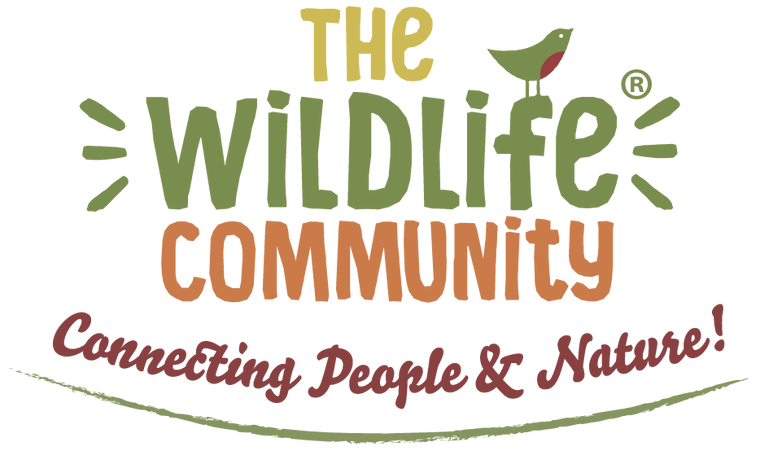
World Bee Day 2025: Bee Inspired by Nature to Nourish Us All
World Bee Day is celebrated on 20th May each year, and in 2025, the theme is “Bee Engaged with Youth”. This day is a global reminder of the importance of bees and other pollinators in supporting biodiversity, ecosystems, and our food supply.
Bees might be small, but their impact is enormous. They pollinate over 75% of our food crops and nearly 90% of wild flowering plants. Without them, both nature and agriculture would suffer — and so would we.
Why Bees Matter...
Pollinators like bees, butterflies, and hoverflies are essential to plant reproduction and biodiversity. In the UK alone, there are more than 270 species of bee — from the well-known honeybee to solitary bees like the red mason bee.
Without pollination:
-
Food production would decline
-
Ecosystems would destabilise
-
Wildlife would lose vital food sources
Protecting bees isn’t just about saving one species; it’s about safeguarding the natural balance that sustains life.
What Threatens Bees in the UK and Globally?
Bees face a number of serious threats, many of which are linked to human activity. These include:
1. Habitat Loss
Urban sprawl, intensive agriculture, and manicured lawns are replacing the wildflower-rich habitats bees rely on.
2. Pesticide Use
Insecticides like neonicotinoids can harm bees’ nervous systems, reducing their ability to navigate, forage, and reproduce.
3. Climate Change
Unseasonal weather and rising temperatures affect flowering times, disrupting the synchronisation between plants and pollinators.
4. Disease and Invasive Species
Diseases like Nosema and pests like the Varroa mite can weaken or wipe out bee colonies. Non-native species such as the Asian hornet also pose a growing threat.
7 Ways to Help Bees This World Bee Day...
Whether you have a large garden, a balcony, or just a windowsill, there are simple things you can do to make a difference.
1. Plant Bee-Friendly Flowers
Choose a mix of native wildflowers that bloom at different times of year. Good options for UK gardens include lavender, foxglove, comfrey, borage, and wild marjoram.
2. Avoid Pesticides
Go pesticide-free or opt for organic alternatives. Even so-called “bee-safe” pesticides can have harmful effects.
3. Let Your Garden Go Wild
Leave a patch of lawn uncut, allow dandelions to flower, or plant a wildflower meadow to provide food and shelter for pollinators.
4. Provide Water
A shallow dish of water with pebbles for perching helps bees stay hydrated, especially during heatwaves.
5. Install a Bee Hotel
Solitary bees love ready-made nesting sites. Our Interactive Solitary Bee Hive is a perfect choice for small gardens.
6. Buy Local Honey and Support Beekeepers
Support sustainable UK beekeepers who promote healthy hives and contribute to local biodiversity.
7. Raise Awareness
Talk to your friends, neighbours, and children about bees and what they do. Education is key to long-term conservation.
Featured Products to Support Pollinators...
Looking for easy ways to support pollinators at home? Explore our pollinator-friendly range:
-
Bee Revival Kit – Ideal for saving tired bees on-the-go
-
Interactive Solitary Bee Hive – Fun and educational for all ages
-
Bee Barrel – A compact nesting option for smaller gardens
These are small but powerful ways to support bee health and attract pollinators to your outdoor space.
Bee Conservation and the Sustainable Development Goals...
Bee conservation links directly to several of the UN’s Sustainable Development Goals (SDGs), including:
-
Zero Hunger (SDG 2): Bees help produce the fruit, vegetables, and nuts we rely on
-
Climate Action (SDG 13): Healthy pollinator populations support resilient ecosystems
-
Life on Land (SDG 15): Bees contribute to biodiversity and ecosystem stability
By taking action locally, you contribute globally.
FAQs about World Bee Day and Bee Protection...
What is World Bee Day?
World Bee Day is an international observance on May 20th that raises awareness about the role of bees and pollinators in ecosystems and agriculture.
How can I help bees in the UK?
Planting native flowers, avoiding pesticides, and installing bee houses are all effective ways to help.
What are the best plants for bees?
Some of the top bee-friendly plants for UK gardens include lavender, catmint, heather, echinacea, and wildflowers like knapweed and oxeye daisy.
Are wild bees more important than honeybees?
Both play important roles. Wild bees often pollinate plants that honeybees don’t, so a mix of pollinators is essential for a healthy ecosystem.
What should I do if I find a tired bee?
Offer a small drop of sugar water (never honey) and place the bee in a safe, sheltered spot to recover.
Be the Change This Bee Day...
This World Bee Day, join us in celebrating and supporting these remarkable pollinators. Every flower you plant, every pesticide you avoid, and every bee you help matters.
Together, we can create a buzz that supports biodiversity — one garden, one hive, and one bee at a time.






